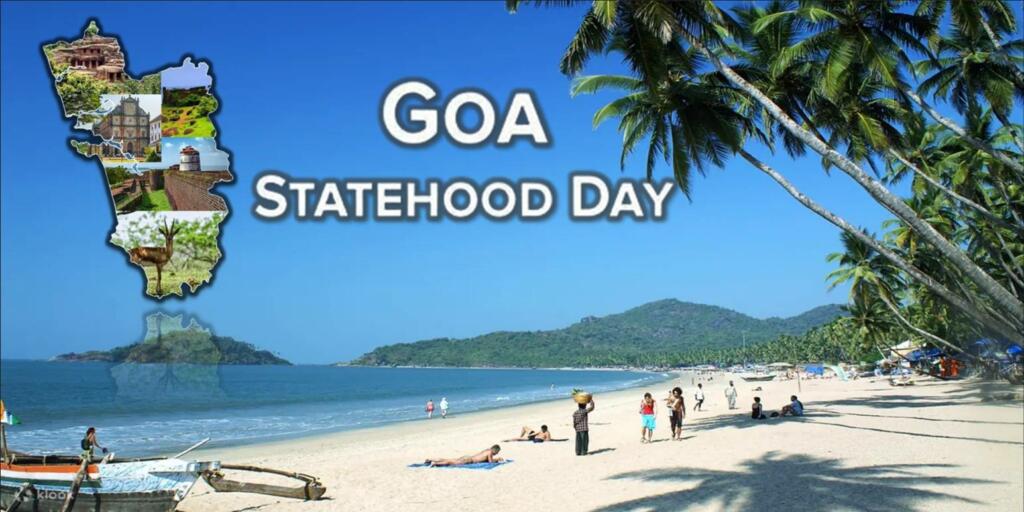Thirty-five summers ago, on this day in 1987, Goa became the 25th state of the Republic of India. Since then, every year, this day is celebrated as the Goa Statehood Day. For fourteen years after independence, Goa remained a Portuguese colony. However, upon the request of the native Goan population, the Indian Army liberated the state from the clutches of the Portuguese on 19 December 1961 ending more than 450 years of colonial rule and setting the stage for its statehood.
On Goa Statehood Day, my greetings to the people of Goa. This is a state blessed with scenic natural beauty and industrious people. It draws people from all parts of the world. I pray that Goa continues to scale new heights of progress in the coming years.
— Narendra Modi (@narendramodi) May 30, 2022
The journey of Goa’s statehood from a colony to a state of India is a fascinating read. Initially, Goa was made a Union Territory within the Indian union with the political ruling class promising that the state’s distinct identity would be maintained. You see, under Portuguese rule, Goa, a predominantly Hindu state was turned into a Christian state.
Greetings to all Goans on Goa Statehood Day! Home to some of India’s most beautiful places, it has a rich eclectic culture that is a matter of pride for all Indians. It has made remarkable progress on development parameters. Best wishes for its continued progress and prosperity.
— President of India (@rashtrapatibhvn) May 30, 2022
Portuguese land in Goa
If we turn the history page, we understand that the Portuguese landed in Goa in the early 16th century. Goa at that time was a predominantly Hindu territory, inhabited by a small number of Muslims. Initially, the Portuguese were interested only in trade and paid scant attention to proselytization. Yet, by 1559, more than 350 temples had been destroyed and idol worship was banned.
However, the Goa Inquisition began only in 1560. One of the first acts of the inquisition was the banning of the open display of the Hindu faith. Construction of Hindu temples was forbidden, and so was their maintenance. Restrictions were put on Hindu marriages, rites, rituals, and even cremation. Wearing of the sacred thread was outlawed, as was the planting of Tulsi plants in the courtyard.
Hindus being cast away by the colonisers
Upper caste Hindus were forbidden from riding the palanquins or on horseback. Hindu landowners could not employ Christian farmhands. All attempts were made by the Portuguese to induce natives to convert. These included forcible abduction of orphans and forced lessons on Christianity to all over 15 years of age.
Additionally, Portuguese soldiers would enter villages and throw pieces of beef at passers-by, thereby rendering people outcast from Hinduism, and forcing them to become Christians. Also, the Konkani language was banned.
All new converts had to adopt Portuguese names and learn the Portuguese language. The inquisition also severely punished those who failed to meet Christianity’s dogmas. Thousands of natives as well as converts were burnt at the stake during Auto-da-fe, and many more were tortured by the inquisition in its dungeons. The exact number of how many perished at the hands of the execrable Goa inquisition has never been ascertained.
Read More: Hinduism is being reclaimed in Goa
Portuguese refused to leave Goa after Indian independence
After India gained independence in 1947, the Portuguese were respectfully asked to leave the Goan shores. However, the colonisers refused as then Portuguese Prime Minister, António de Oliveira Salazar, asserted that Goa and the other enclaves were not colonies but part of metropolitan Portugal. Subsequent negotiations failed and India withdrew its diplomatic mission from Lisbon on June 11 1953.
Consequently, in 1961, after several unprovoked attacks on Indian citizens by the Portuguese, India launched Operation Vijay. In a combined Land, Sea and Air operation, the Portuguese army in Goa was overwhelmed by the superior numbers of the Indian Army.
The war lasted all but two days and resulted in the capture of 4,688 Portuguese military personnel while 30 lost their lives. However, by the end of it, the government had finally managed to assimilate Goa into mainland India.
First and only referendum held in India
On 16 January 1967, a referendum was held in Goa to decide whether Goa would merge with the neighbouring state of Maharashtra or it would remain as a UT. The only referendum to have ever been held in India decided against the merger and opted to remain a UT.
Later on 30 May 1987, Goa was given full statehood and thus became the newest state in the Republic of India. After its establishment, Panaji was given the status of the capital of Goa and the Konkani language as the official language. Since then, every year on this day, the people of the state celebrate its statehood (Goa Statehood Day) by organising cultural events and functions.
